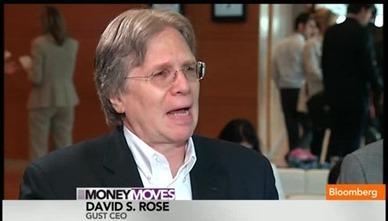 It is no secret that the world of venture capital (VCs) was turned upside down by the recent Recession, and many other changes in the marketplace. I see now emerging a new wave of investors, popularly known as “super-Angels,” micro-VCs, or “super-seed” investors. Every early-stage startup should explore this new funding alternative.
It is no secret that the world of venture capital (VCs) was turned upside down by the recent Recession, and many other changes in the marketplace. I see now emerging a new wave of investors, popularly known as “super-Angels,” micro-VCs, or “super-seed” investors. Every early-stage startup should explore this new funding alternative.
Examples of some leaders in this space include Mike Maples in Silicon Valley and David S. Rose in NYC, who each make up to ten investments a year of up to $250,000. Business Week ran a more thorough analysis of this movement a while back, which I have updated below. I would conclude that the genesis of this trend comes from several forces, including the following:
-
Less investment capital available. Venture capital dispensed quarterly to startups actually declined again in the first quarter of 2013 to $6.3 billion, the lowest quarterly total in more than two years. Due to the struggling economy as well, traditional individual Angel investors haven’t been able to fill the gap.
-
New “up-and-comer” VCs focus on early-stage companies. VCs are finding that they don’t need the “large” funds of $100M to $500M to support a portfolio, if they focus on early-stage startups. It’s higher risk, but higher return, to pick the big winners early, before Angels have set unreasonable valuations and restrictive terms.
-
Technology costs are plummeting, meaning you can do more with less. Twenty years ago, it cost $5 million to really launch a high-tech startup, when the same thing can be done today for $500 thousand. So, in effect, VCs need to come in at what was formerly the Angel stage to grab the gems and hold them.
-
Many old-line VC firms have grown too big and unwieldy. More are realizing that they have forgotten how to build innovative companies, so they are going back to their roots, when firms were smaller and more nimble. They can plant more seeds, and place less dependency on the big win.
-
Being “lifecycle investment partners” has a downside. As venture funds grew bigger during the dotcom bubble, and sized themselves to invest in every round of selected startups, they found it was very hard to stop investing in the underperforming companies. That model doesn’t seem to work any more.
-
Great companies are made, not born. Conventional wisdom is changing from startups being born a winner (execution doesn’t matter), to being made a winner (more chances and more help early on). This means smaller amounts given to more entrepreneurs who get a chance to prove that they can build great businesses.
Of course there a couple of potential down sides to this movement:
- As more startups are funded, without the big VCs on the other end, more companies will be looking for growth dollars and may languish trying to differentiate themselves in a crowded, but slow spending, consumer marketplace.
- More sources of funding for early-stage startups may drive up valuations on these deals, which will lower the returns for the Angels and super-Angels willing to do these deals. That could cause this bubble to burst and hurt everyone.
I applaud the direction of investors who want to re-invigorate venture capital by taking it back to the real entrepreneur who needs help getting his venture off the ground. Too many founders today face the conundrum that they need capital to get started, and even Angels defer until after you have your product built, business model proven, and a real revenue stream.

